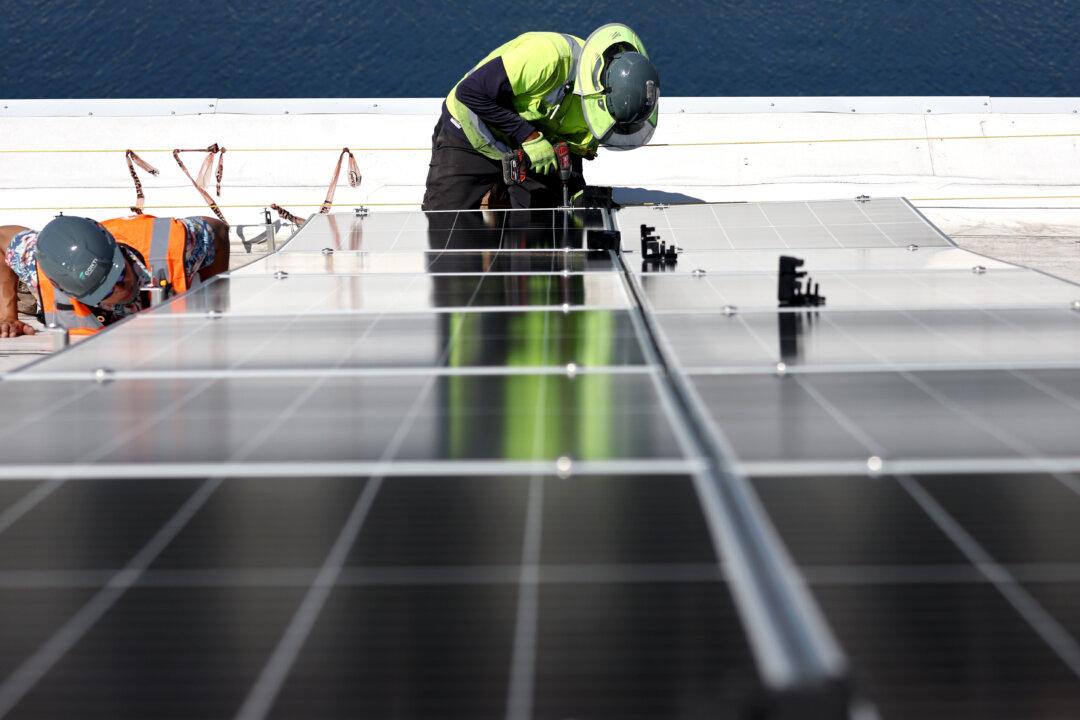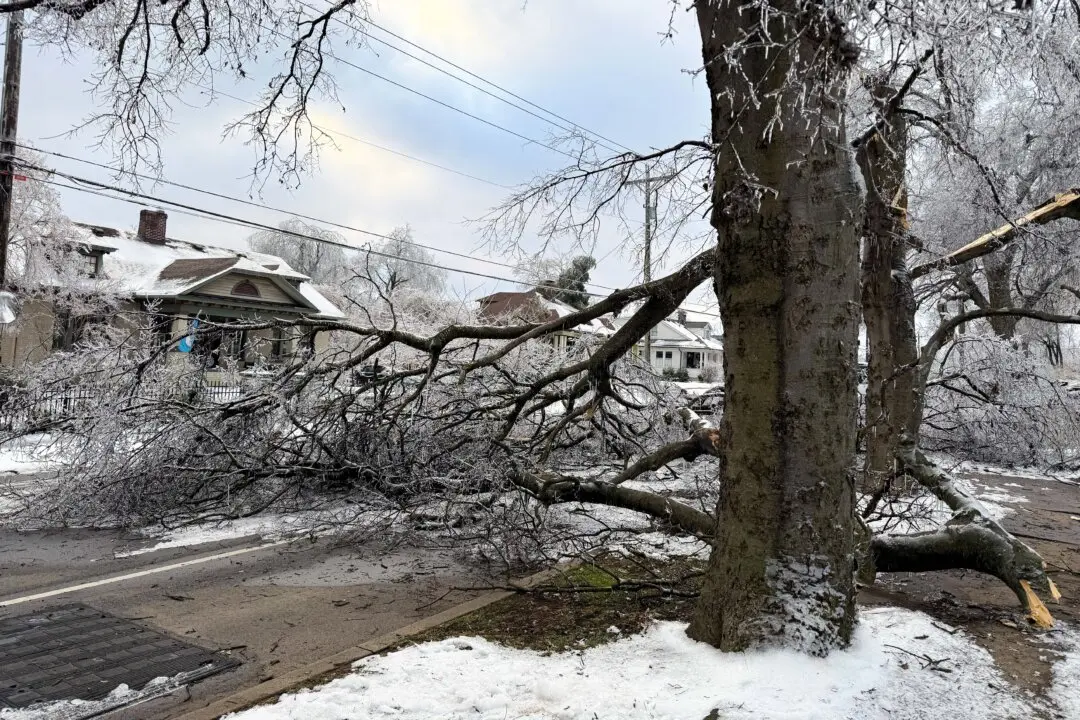A bipartisan group of four senators, led by two Democrats from Georgia, have requested President Joe Biden increase tariffs on Chinese solar panels, asserting that the market will become oversaturated without substantial change.
The Jan. 26 letter was sent by Sen. Jon Ossoff (D-Ga.) and co-signed by Sen. Sherrod Brown (D-Ohio), who is in a tough reelection fight, as well as Sens. Marco Rubio (R-Fla.) and Raphael Warnock (D-Ga.), and urged the president to “increase and enforce tariffs on solar module, cell, and wafer imports from China under the authority granted in Section 301 of the Trade Act of 1974.”





